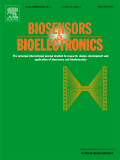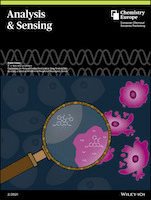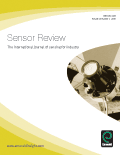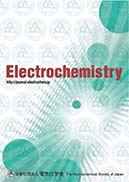
SENSORS
metrics 2024
Empowering global collaboration through open-access research.
Introduction
SENSORS is a leading peer-reviewed open-access journal published by MDPI, dedicated to the field of sensor technology and its applications. Established in 2001 and located in Basel, Switzerland, this journal plays a pivotal role in disseminating groundbreaking research encompassing various disciplines, including Analytical Chemistry, Physics, Engineering, and Biochemistry. With a distinguished 2023 Scopus ranking that places it in Q1 across multiple categories and a commendable impact factor reflective of its high-quality contributions, SENSORS has cemented its status as an essential resource for researchers and professionals alike. The journal is committed to facilitating knowledge exchange in cutting-edge sensor technologies, fostering advancement in areas such as instrumentation, medical applications, and electronic engineering. The convenient open-access model ensures that research findings are readily accessible to a global audience, promoting collaboration and innovation within the scientific community. For all those interested in probing the depths of this dynamic field, SENSORS provides a rich repository of research that not only informs but inspires future explorations.
Metrics 2024
 -
- 3.40
3.40 3.70
3.70 -
-Metrics History
Rank 2024
IF (Web Of Science)
JCI (Web Of Science)
Quartile History
Similar Journals

BIOSENSORS & BIOELECTRONICS
Unveiling the Potential of Bioengineering TechnologiesBIOSENSORS & BIOELECTRONICS, published by Elsevier Advanced Technology, is at the forefront of research and innovation in the realms of biomedical engineering, biophysics, and biotechnology. Established in 1990, this esteemed journal has established itself as a premier platform, receiving a prestigious Q1 ranking across multiple categories, including Electrochemistry and Nanoscience, reflecting its critical impact on advancing scientific knowledge and technology. With an impressive range of topics, including the latest trends in biosensor development and bioelectronic application, it serves as an invaluable resource for researchers, professionals, and students alike, facilitating collaborative dialogue and innovative solutions. Though primarily subscription-based, the journal is accessible from its UK headquarters in Oxford, promising rigorous peer-reviewed articles that inform future trends and applications in this dynamic field.

Analytical and Bioanalytical Chemistry Research
Bridging Disciplines in Analytical and Bioanalytical Chemistry.Analytical and Bioanalytical Chemistry Research is an esteemed open-access journal published by the Iranian Chemical Society, dedicated to the advancement of knowledge in the fields of analytical chemistry, biochemistry, and spectroscopy. Since its inception in 2014, this journal has provided a platform for researchers, professionals, and students to publish and access high-quality research articles that contribute to the understanding of chemical analysis and bioanalytical methods. With an ISSN of 2383-093X and an open-access model that promotes global dissemination of findings, it ensures that innovative research reaches a broad audience. The journal has consolidated its presence in the scientific community, currently ranked in quartile Q4 for analytical chemistry, biochemistry, and spectroscopy as of 2023. Its Scopus rankings, including a percentile of 34th in Analytical Chemistry, reflect its commitment to quality research and scholarly contribution. Situated in Tehran, Iran, the journal serves as a vital resource for academic discourse, offering insights into emerging trends and methodologies in analytical and bioanalytical chemistry.

Biosensors-Basel
Advancing biosensor innovation for a healthier tomorrow.Biosensors-Basel is a premier Open Access journal, published by MDPI since 2011, dedicated to advancing the field of biosensors and related technologies. With its academic headquarters in Basel, Switzerland, the journal serves as a vital resource for researchers, professionals, and students across various disciplines, including Analytical Chemistry, Biomedical Engineering, Biotechnology, and Clinical Biochemistry. Boasting an impressive range of quartile rankings—such as Q1 in Instrumentation and Q2 across several other categories—Biosensors-Basel is recognized for its high-impact research and significant contributions to the scientific community, evidenced by Scopus rankings that place it among the top journals in its field. The journal's open-access model ensures that cutting-edge findings are accessible to a global audience, promoting collaboration and innovation in biosensor technology and its applications. Scholars and professionals looking to stay on the forefront of this dynamic field will find Biosensors-Basel an indispensable platform for sharing knowledge and fostering advancements.

BIOMEDICAL MICRODEVICES
Fostering Collaboration in Biomedical Microdevice ResearchBIOMEDICAL MICRODEVICES is a leading journal published by Springer that focuses on the innovative field of microdevices within biomedical engineering. With an ISSN of 1387-2176 and an E-ISSN of 1572-8781, BIOMEDICAL MICRODEVICES offers a prestigious platform for researchers to disseminate their findings from 1998 to 2024, demonstrating a long-standing commitment to advancing knowledge in this critical area. The journal is recognized for its significant contributions, boasting a Q2 ranking in Biomedical Engineering and Nanoscience and Nanotechnology, and a Q3 rank in Molecular Biology. Renowned for its rigorous peer-review process, it is positioned within the top 30% of its field according to Scopus rankings, making it a valuable resource for researchers and practitioners alike. Though it operates under a subscription model, the emphasis on quality and relevance within its scope ensures that BIOMEDICAL MICRODEVICES remains a vital source of cutting-edge research that bridges engineering and biological systems, fostering innovation and collaboration in the pursuit of novel health solutions.

Analysis & Sensing
Elevating Standards in Analytical and Electrochemical ResearchAnalysis & Sensing is a prominent academic journal published by WILEY-V C H VERLAG GMBH, focusing on the critical fields of Analytical Chemistry, Electrochemistry, Spectroscopy, and Biochemistry. Established within the converged years from 2021 to 2024, the journal aims to advance knowledge in analytical and sensing techniques, providing a platform for high-quality research that reflects current trends and challenges in the scientific community. With a Scopus ranking that highlights its credibility—ranking 101st in Analytical Chemistry and 43rd in Electrochemistry—the journal caters to researchers, professionals, and students striving to enhance their understanding of analytical processes and methodologies. Although not open access, the quality of the articles published ensures a rigorous peer-review system, making it a vital resource for those who wish to remain at the forefront of research innovation in analytical sciences. Additionally, its global reach, indicated by its effective dissemination and relevance, underscores the journal's significance within the realm of chemical research.

Journal of Sensors
Illuminating the Path of Sensory ResearchJournal of Sensors, published by HINDAWI LTD, is a prominent peer-reviewed academic journal dedicated to the rapid dissemination of significant findings in the field of sensory technology and its applications. Established in 2008 as an Open Access journal, it aims to provide unrestricted access to valuable research outputs for researchers, professionals, and students alike. With an impressive convergence period from 2009 to 2024, the journal features a diverse range of articles that cater to various categories, including Control and Systems Engineering, Electrical and Electronic Engineering, and Instrumentation, each currently ranked in the Q3 quartile for 2023. The journal is notable for its international scope, as evidenced by its foundation in the United States and backing from a reputable publisher. With a commitment to fostering innovation and collaboration in sensor technology, the Journal of Sensors stands as a vital resource within the academic community, encouraging the exploration and development of cutting-edge sensor systems and applications.

Sensor Review
Exploring Innovations in Sensor TechnologySensor Review, an esteemed journal within the fields of Electrical and Electronic Engineering as well as Industrial and Manufacturing Engineering, is published by EMERALD GROUP PUBLISHING LTD. With an ISSN of 0260-2288 and an E-ISSN of 1758-6828, this journal has been a crucial resource since its inception in 1981, now extending its coverage to 2024. Although currently classified as Q4 in Electrical and Electronic Engineering and Q3 in Industrial and Manufacturing Engineering for 2023, the journal is recognized for its significant contributions to sensor technology and applications, catering to both theoretical and practical dimensions of the field. Researchers and professionals engaged in sensor innovation and application will find Sensor Review an essential platform for disseminating cutting-edge research and fostering academic dialogue. While it does not offer open access, the journal's rigorous peer-review process and respectability in the academia ensure that published articles meet high scholarly standards. The journal’s impact is further reflected in its Scopus rankings, establishing it as a noteworthy publication among its peers.

BioChip Journal
Catalyzing Breakthroughs in Biomedical Engineering and BeyondBioChip Journal, published by the Korean Biochip Society (KBCS), is a renowned academic platform dedicated to advancing the fields of bioengineering, biomedical engineering, biotechnology, and electrical and electronic engineering. With its ISSN 1976-0280 and E-ISSN 2092-7843, this esteemed journal has established itself as a valuable resource for researchers, professionals, and students alike, providing them with cutting-edge research and insights since its inception in 2008. The journal has earned a commendable standing in the academic community, achieving Q2 ranking across key categories, thereby placing it amongst the top-tier publications. With its impressive Scopus rankings, including a top 10% position in Electrical and Electronic Engineering and a strong showing in both Biomedical Engineering and Biotechnology, BioChip Journal plays a vital role in disseminating innovative biochip technologies and applications. The journal continues to invite groundbreaking studies and reviews that promote the interdisciplinary collaboration essential for the future of biochip research, ultimately contributing to advancements in healthcare, diagnostics, and therapeutics.

Journal of Sensors and Sensor Systems
Pioneering Innovations in Sensor TechnologyThe Journal of Sensors and Sensor Systems, published by COPERNICUS GESELLSCHAFT MBH, is a prominent open-access journal that has been contributing to the fields of electrical and electronic engineering and instrumentation since its inception in 2012. With an ISSN of 2194-8771 and an E-ISSN of 2194-878X, this journal provides a critical platform for researchers, professionals, and students to disseminate innovative findings and advancements in sensor technology and system applications. As of 2023, it holds a respectable ranking in the third quartile for Electrical and Electronic Engineering and in the fourth quartile for Instrumentation, as per Scopus classifications. The journal is based in Göttingen, Germany, and emphasizes the importance of open access for broad dissemination of knowledge. By fostering interdisciplinary research and collaboration, The Journal of Sensors and Sensor Systems plays an essential role in advancing sensor technologies, ultimately driving progress in various scientific and engineering domains.

ELECTROCHEMISTRY
Connecting Global Minds in Electrochemical TechnologyELECTROCHEMISTRY is an esteemed journal published by the Electrochemical Society of Japan, dedicated to advancing the field of electrochemical science and technology. With an ISSN of 1344-3542 and an E-ISSN of 2186-2451, this journal has been providing a platform for scholarly communication since its inception in 1996, with a converged scope extending to 2024. As an Open Access publication since 2020, it facilitates the wide dissemination of research, fostering collaboration among researchers, professionals, and students alike. Currently positioned in Q3 of the electrochemistry category and ranking 52 out of 60 in Scopus, ELECTROCHEMISTRY is committed to publishing high-quality, peer-reviewed articles that explore novel electrochemical systems, applications, and methodologies. With its base in Tokyo, Japan, the journal serves a global audience, promoting cutting-edge research that drives innovation in energy, materials science, and analytical chemistry.